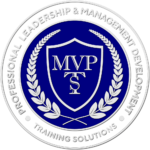The recruitment of an employee in a company is one of the most important functions in any HR division, and for a good reason, whomever you hire determines what the future is going to look like for the organization.
Every job has its own set of skills that are required from an employee. For example, an accountant must be an expert in Excel sheets and numbering.
However, attention to detail is not a very specific skill required by the hiring committee and the interviewee isn’t asked about it because it is a no-brainer, right? The candidate obviously needs to be detail-oriented!
It is crucial to focus on this specific aspect during recruitment because this will help you attract candidates that pay attention to all tasks, know how to spot errors in their work and error-producing patterns, and can deliver maximum accuracy results. They could recommend having certificates to build your attention to detail skills from MVP training solutions.
What is Attention to Detail?
An individual in the workplace needs to focus on all aspects of their work. Moreover, attention to detail refers to the trait that drives people to focus on all aspects of their work, small and big.
Having the skill of attention to detail gives an employee the ability to put their all into the work. Furthermore, it shows the credibility of an employee. Hence, employees with this trait tend to research extensively and produce highly accurate results.
Importance of Attention to Detail in the Workplace:
The eye for detail makes the job easier all around for everyone concerned and makes the workplace more effective. So, here is why attention to detail in the workplace matters so much:
Clear Instructions:
Every workplace needs to set SMART goals. When a manager is handing out tasks, it is vital for the manager to convey instructions clearly, simply, and in a sequence that is according to those SMART goals.
The task that is being handed to them needs to have clear instructions and the employee should know what they are exactly expected to do and assume they know certain things.
This way, you can avoid tackling mistakes later, and the final work would come in on time and without any errors.
Quick Resolutions:
When you’re quick to catch on to things and have an eye for detail, you can identify mistakes in your work or before it is about to occur. Moreover, this would allow you to correct what needs to be fixed with minimal trouble and avoid delays in the work later.
High-Quality Results:
Focusing on little things makes a massive difference. Moreover, the task could be anything but if you’re focusing on the little details bring high-quality results. The productivity and team dynamics in the workplace can be improved by paying attention to detail.
However, the company also meets necessary industry benchmarks and necessary government standards.
Examples of ‘Attention to Detail’ Skills:
With the MVP solutions, we have seen why attention to detail matters. However, how does one test for it when assessing candidates?
Organizational Skills:
A person’s physical and mental resources should be fully and efficiently used. Moreover, having good organizational skills create a distraction-free workplace and plan one’s work for maximum efficiency and timeliness.
The use of checklists, daily schedule creation, and monitoring task progress are all aspects of effective organization. One of the key indicators of job performance is attention to detail.
Observational Skills:
Observation skills are the most important keys to attention to detail. Similarly, it includes aspects like being aware of how the workplace is structured, paying attention to signage, and even interpreting facial expressions.
Hence, when you are able to observe the little things, you absorb more.
